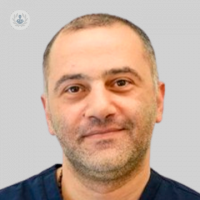Why might a tooth need to be extracted?
Written in association with:This article below sheds some light on tooth extractions, including when teeth need to be removed, what the process involves, and why it is so beneficial to patients.

What is meant by tooth extraction?
Tooth extraction is the removal of a tooth from its socket in the jawbone. It is a very common dental procedure that may be necessary for various reasons.
Why might a tooth need to be extracted?
There are several reasons why a tooth may need to be extracted. One of the most common reasons is severe tooth decay or damage that cannot be effectively treated with restorative procedures such as fillings or crowns.
Additionally, impacted wisdom teeth, which are unable to erupt properly due to lack of space or misalignment, often require extraction to prevent pain, infection, and other oral health issues. Tooth extractions may also be necessary to make room for orthodontic treatment or to address advanced gum disease that has caused irreversible damage to the tooth's supporting structures.
What does a typical tooth extraction process entail?
The tooth extraction process typically begins with a consultation with a dentist or oral surgeon, who will assess the tooth's condition and determine the best approach for extraction.
During the extraction procedure, the dentist or oral surgeon will gently loosen the tooth from its socket using specialised instruments and carefully remove it. In some cases, the tooth may need to be sectioned into smaller pieces for easier removal. Once the tooth has been extracted, the socket is cleaned, and any necessary stitches may be placed to promote healing.
Is the procedure safe?
While tooth extraction may seem daunting, it is a routine and safe procedure that can alleviate pain, prevent oral health issues, and promote overall dental well-being. By understanding the reasons for extraction and what to expect during and after the procedure, individuals can approach tooth extraction with confidence and achieve a healthier smile.
To consult with Dr Nikolaos Kasiteridis, just visit his Top Doctors profile today.


